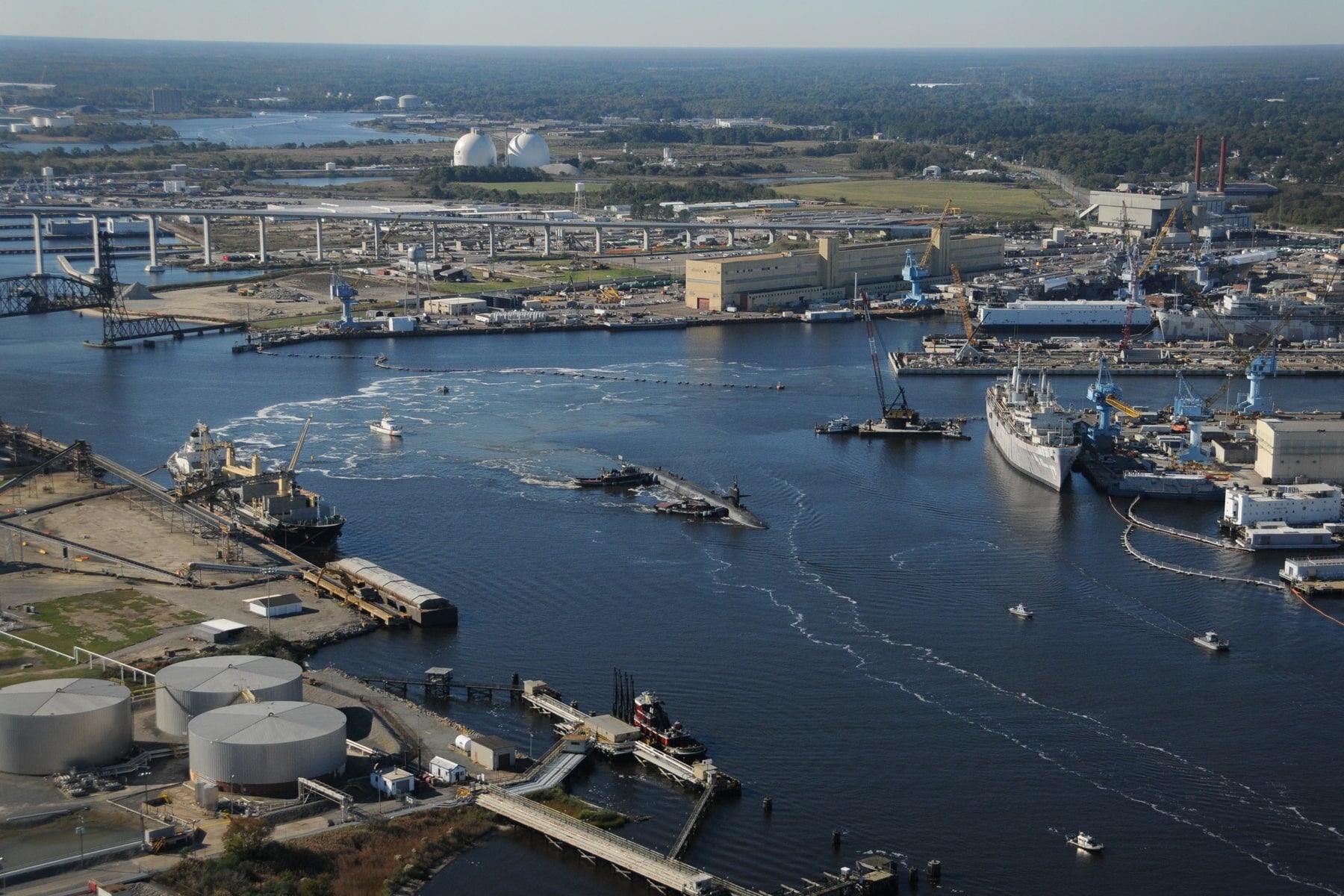
The Supplying Help to Infrastructure in Ports, Yards, and America’s Repair Docks (SHIPYARD) Act would provide $21bn for the recapitalisation of US Navy’s four public shipyards in Virginia, Maine, Hawaii, and Washington and a further $4bn for private construction and repair shipyards.
The bill has been signed onto by Senators Tim Kaine (Virginia), Susan Collins (Maine), Angus King (Maine), and Jeanne Shaheen (New Hampshire); Mississippi Senator Roger Wicker is heading up the legislative effort.
The draft legislation came as US President Joe Biden unveiled a massive multi-trillion dollar infrastructure package.
The bill is designed to address a ‘backlog’ of ‘modernisation, maintenance, and expansion’ identified by the US Navy and provide the US Navy ‘flexibility to support capital improvement projects’ and other improvements seen as key to growing the US’s fleet.
Projects identified for funding would include infrastructure improvements and the building of new drydocks, fully financing the Shipyard Infrastructure Optimization Program (SIOP).
Wicker said: “As lawmakers consider ways to improve our nation’s infrastructure, the facilities that support our navy fleet should be a part of the conversation.
“Congress has already taken the important step of committing to a larger navy, but our shipyards are having trouble servicing today’s 296-ship fleet and are clearly insufficient to maintain the 355-ship or larger fleet we need to counter China, Russia, and other adversaries. Now is the time to provide our navy leaders the support they need to grow and preserve our fleet for generations to come.”
The bill’s text says that while the US public shipyards have neem ‘incrementally’ updated, they need a ‘generational investment’ to ensure they can continue to sustain the US Navy fleet into the future.
Kaine said: “Virginia’s public and private shipyards are crucial to strengthening our national security.
“This legislation would ensure that our sailors, shipbuilders, and ship repairers have the most up-to-date tools, equipment, and facilities to ensure our navy remains ready to protect our nation.”
Two members of Congress, Representatives Rob Wittman and Mike Gallagher, are also supporting the bill. The bill’s sponsors cited the massive growth of China’s Navy, saying that improving US facilities would help the country compete with China.
Collins said: “The importance of our naval assets to our national security and global stability has never been greater, which is why it is so critical that our defence industrial base has the capacity to build and maintain a larger fleet.”
The Maine Senator added that if the US is ‘serious’ about competition with China, it must ‘consider’ defence infrastructure. Collins cited the navy’s identification of a ‘critical lack’ of dry docks at the US’ four public shipyards.
A White Paper released alongside the legislation lists several problems facing commercial and private shipyards, including ageing infrastructure, dry dock limitations, excessive maintenance delays, a maintenance backlog and that current infrastructure cannot keep pace with China’s shipbuilding efforts.
“Our bipartisan legislation would support infrastructure improvements at shipyards across the country to help reduce maintenance backlogs, increase safety and efficiency, and accommodate growth to counter China’s growing naval ambitions,” Collins added.
On maintenance delays, the white paper reads: “Delays caused by lack of public and private repair capability are crippling our naval readiness at a time when we can least afford it.”
As examples of this, the paper cited the 22-months it took to repair the USS Fitzgerald after a collision in 2017 and the four years Los Angeles-class Attack Submarine USS Boise sat at pier side waiting for repairs due to a lack of capacity.
King said: “As the Navy seeks to grow its fleet to address an array of challenges across the globe, and the associated maintenance requirements continue to expand, it is absolutely essential that we provide these shipyards with the modern tools and technologies they need to meet growing demand.
“This bipartisan legislation will make much-needed investments in a critical part of our national security infrastructure – including adaptations to prepare for the potential impacts of climate change – ensuring that these storied yards will be able to continue to fulfil their important duties for decades to come.”
The bill does not provide extra funds to be made available to the United States Coast Guard Yard in Maryland.
Representative Whitman said: “The United States Navy depends on four American public shipyards, including Norfolk Naval Shipyard right here in Virginia, to maintain and modernise our nuclear-powered submarines and aircraft carriers,
“But our shipyards’ ageing infrastructure fails to provide the capacity, configurations, or equipment necessary to maintain fleet readiness. These factors have not only resulted in a maintenance backlog amongst our current ships but have left us ill-prepared to grow our navy to keep pace with China.”
Whitman added that the US could ‘build all the ships we want’ but without improvements to maintenance backlogs, the ships wouldn’t do ‘much good’.
“The SHIPYARD Act solves these problems by injecting desperately needed funding into the Navy’s Shipyard Infrastructure Optimization Program (SIOP) and making critical infrastructure investments to modernise American shipyards. Moreover, this bill marks one of our most substantial SIOP investments to date, highlighting the programme’s ever-growing importance,” he added.



